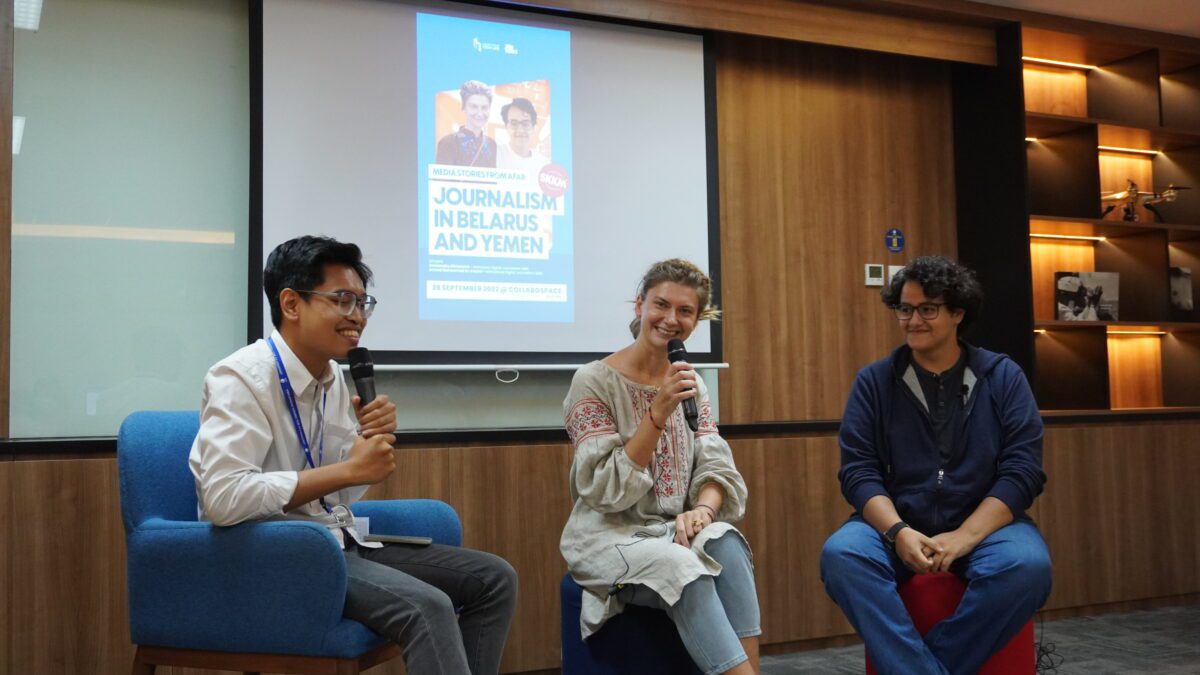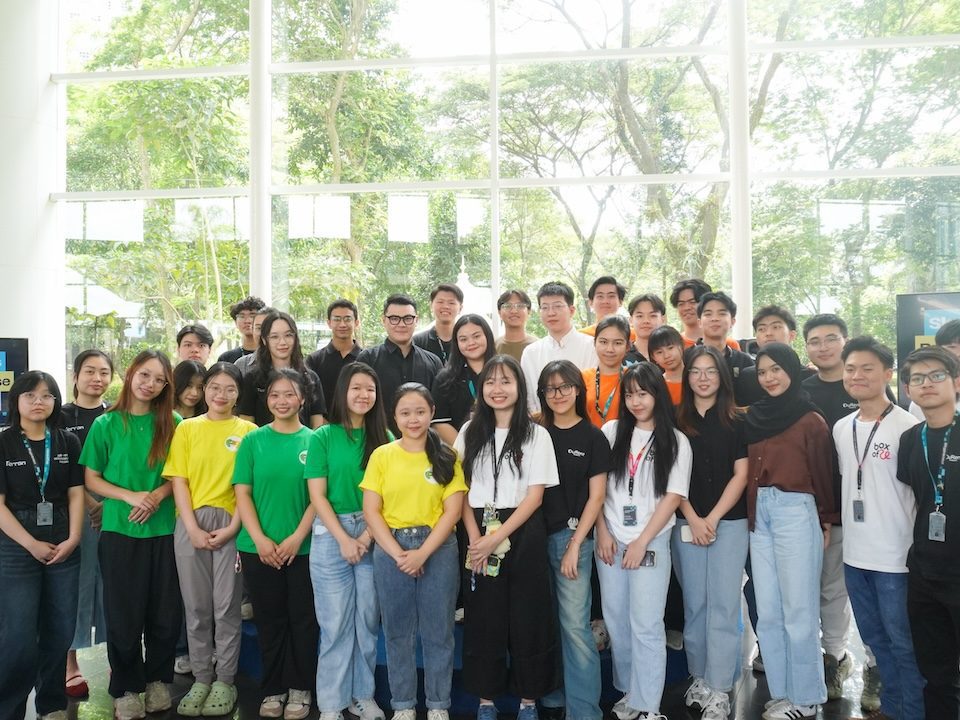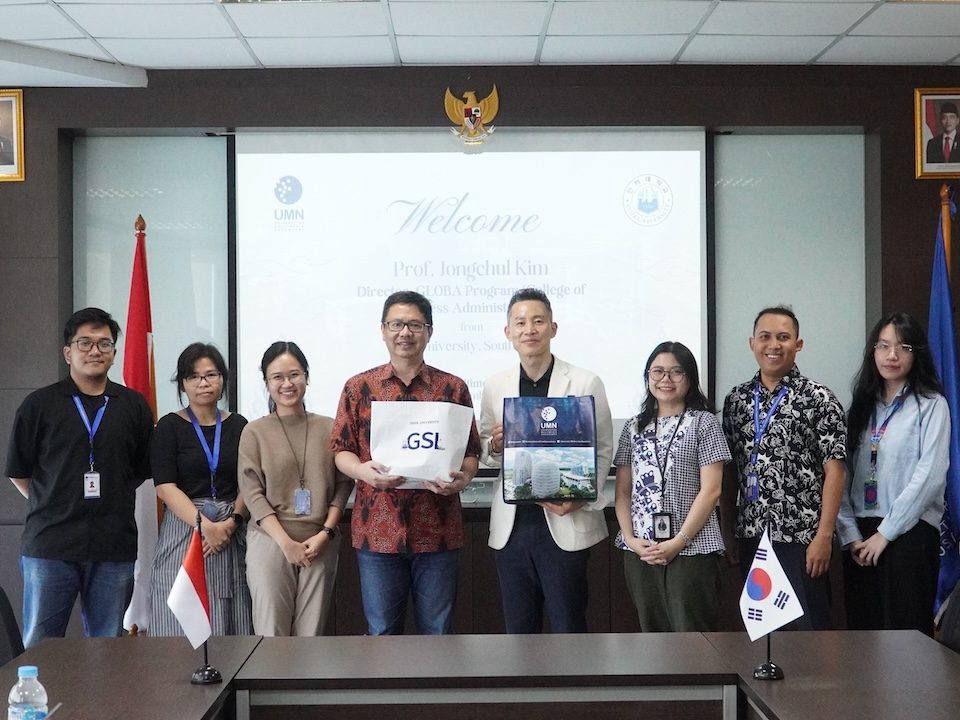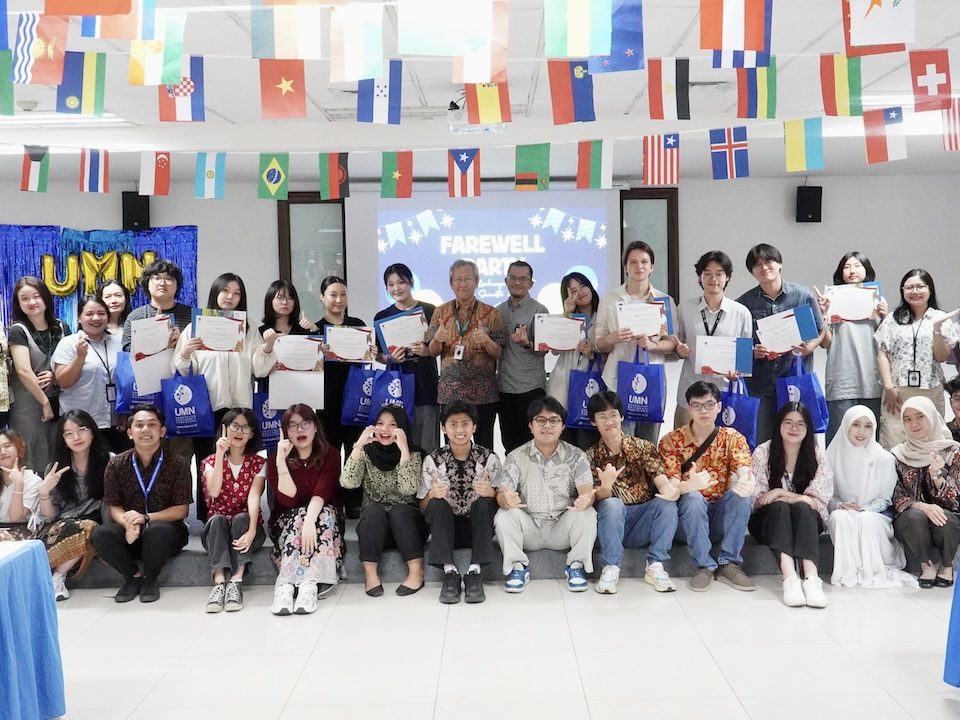
5 Promising Computer Engineering Careers
October 5, 2022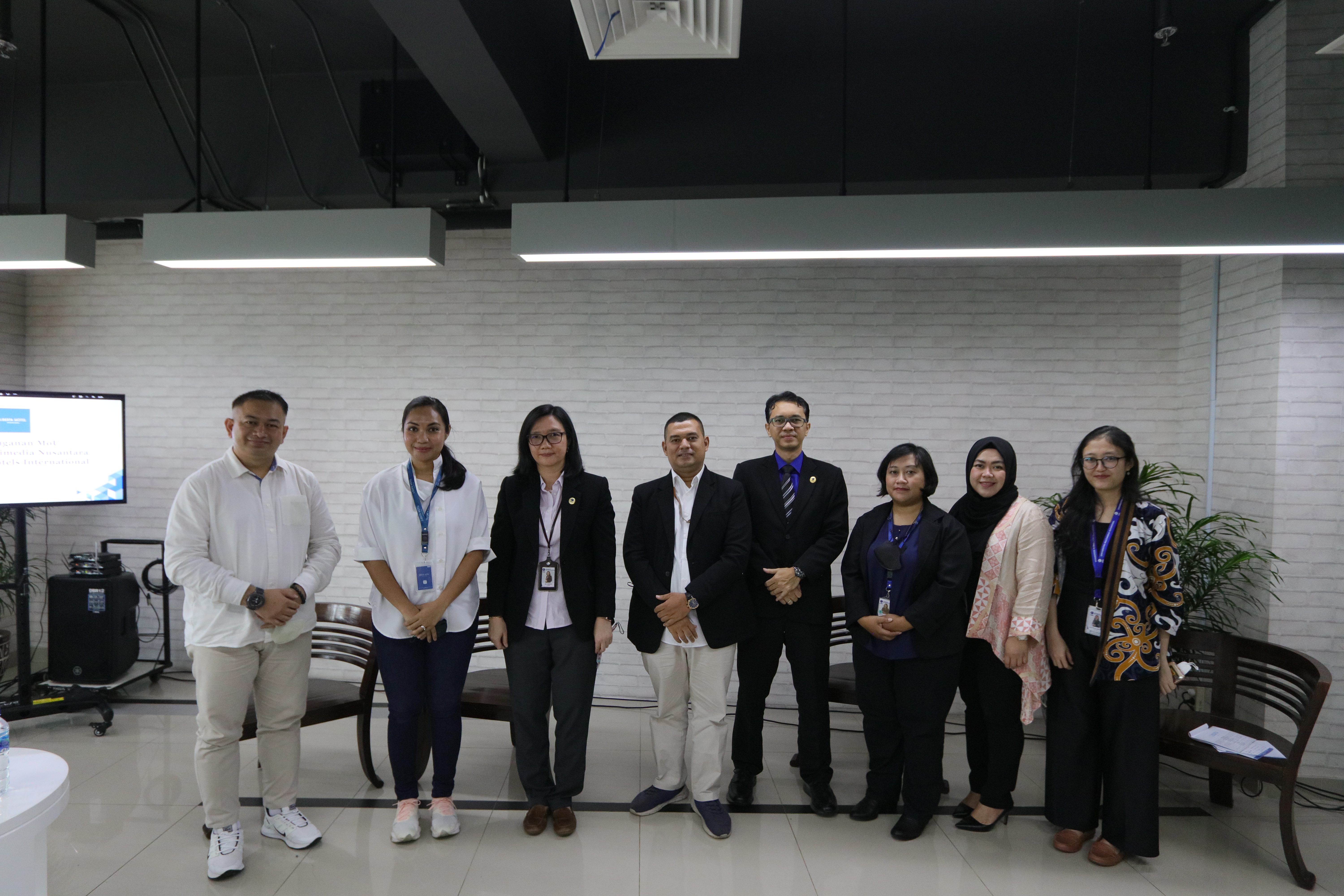
UMN and Hotel Liberta Internasional Collaborate on an Internship Program for UMN Students
October 6, 2022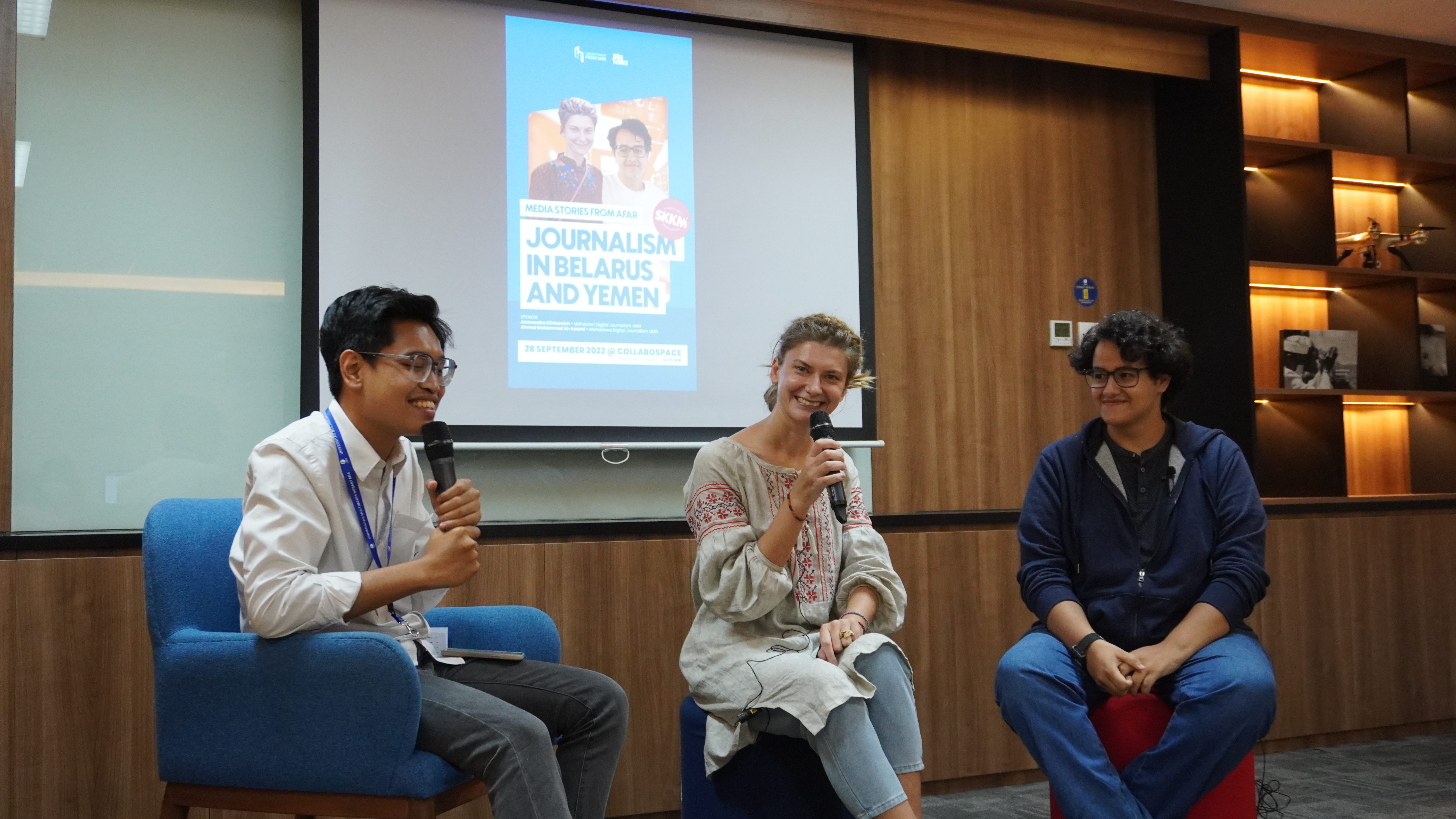 Aliaksandra Klintsevich (middle) and Ahmed Mohammed Yahya Al-Awami (right) share stories about journalism in their respective countries. (Doc. UMN)
Aliaksandra Klintsevich (middle) and Ahmed Mohammed Yahya Al-Awami (right) share stories about journalism in their respective countries. (Doc. UMN)
TANGERANG – On the 28th of September 2022, the Laboratorium of the Faculty of Communications of Multimedia Nusantara University (UMN) (Lab FIKOM UMN) conducted a mini-session entitled “Media Stories from Afar: Journalism in Belarus and Yemen.” This mini-session is a part of “We Talks,” where speakers and moderators come together to discuss various exciting topics.
For this mini-session, Lab FIKOM UMN invited Aliaksandra Klintsevich and Ahmed Mohammed Yahya Al-Awami, two of the five International Terbuka Sumbawa University (Universitas Terbuka Sumbawa International) (UTS International) students studying at UMN. Aliaksandra and Ahmed chose the Digital Journalism Study Program of UMN as one of the courses they took for the U-Gas Program. In this opportunity, they shared how journalism is in their respective countries.
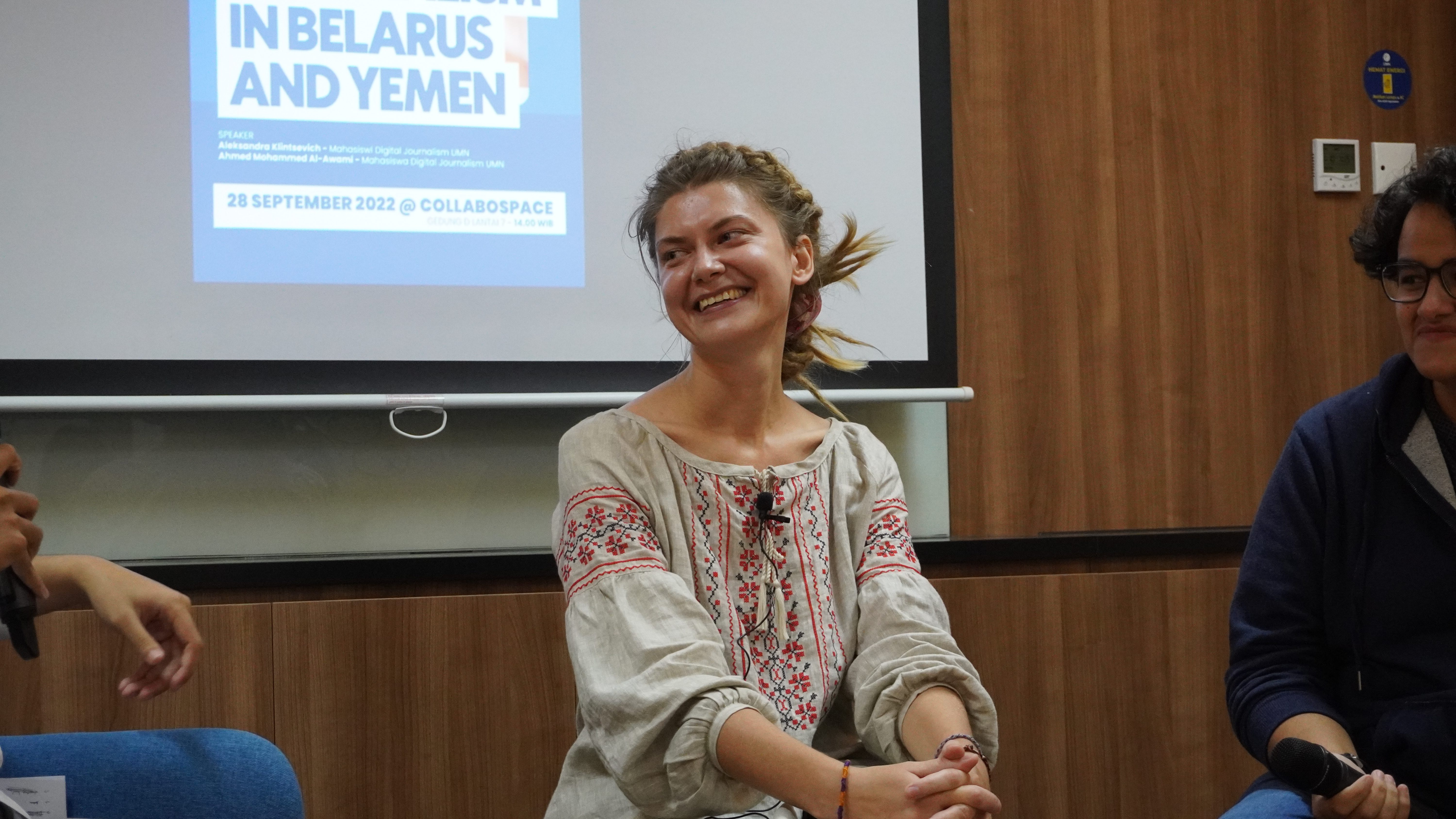 Aliaksandra shared that state-controlled media dominate the media in Belarus. (Doc. UMN)
Aliaksandra shared that state-controlled media dominate the media in Belarus. (Doc. UMN)
“In Belarus, we have state-controlled media and independent media. But state-controlled media takes up the majority of the media in Belarus, and the state-controlled media in Belarus mostly follows the same agenda and uses the media for propaganda. While the small population of independent media, which is currently restricted, are mostly present on the internet, social media, or independent media blogs,” Aliaksandra shared.
Interestingly, unlike in Indonesia, where most or not all mainstream media has its own online media (website or social media), the state-controlled media only uses traditional mediums like TV, radio, and print. She also added that politics dominates the news cycle with minimal entertainment news.
It could be said that the media environment in Belarus is not free. According to a report by The European Parliamentary Research Service (EPRS), “state-controlled media outlets continue to dominate the information sphere, and independent media and journalists regularly experience harassment, raids and even imprisonment.” This also causes the majority of Belarusian citizens to distrust state-controlled media. A 2021 report by the Centre for East European and International Studies (ZOiS) shows that 70.6% of Belarusian citizens use social and online media as their primary source of information; only 10% of respondents use state media as their primary information source.
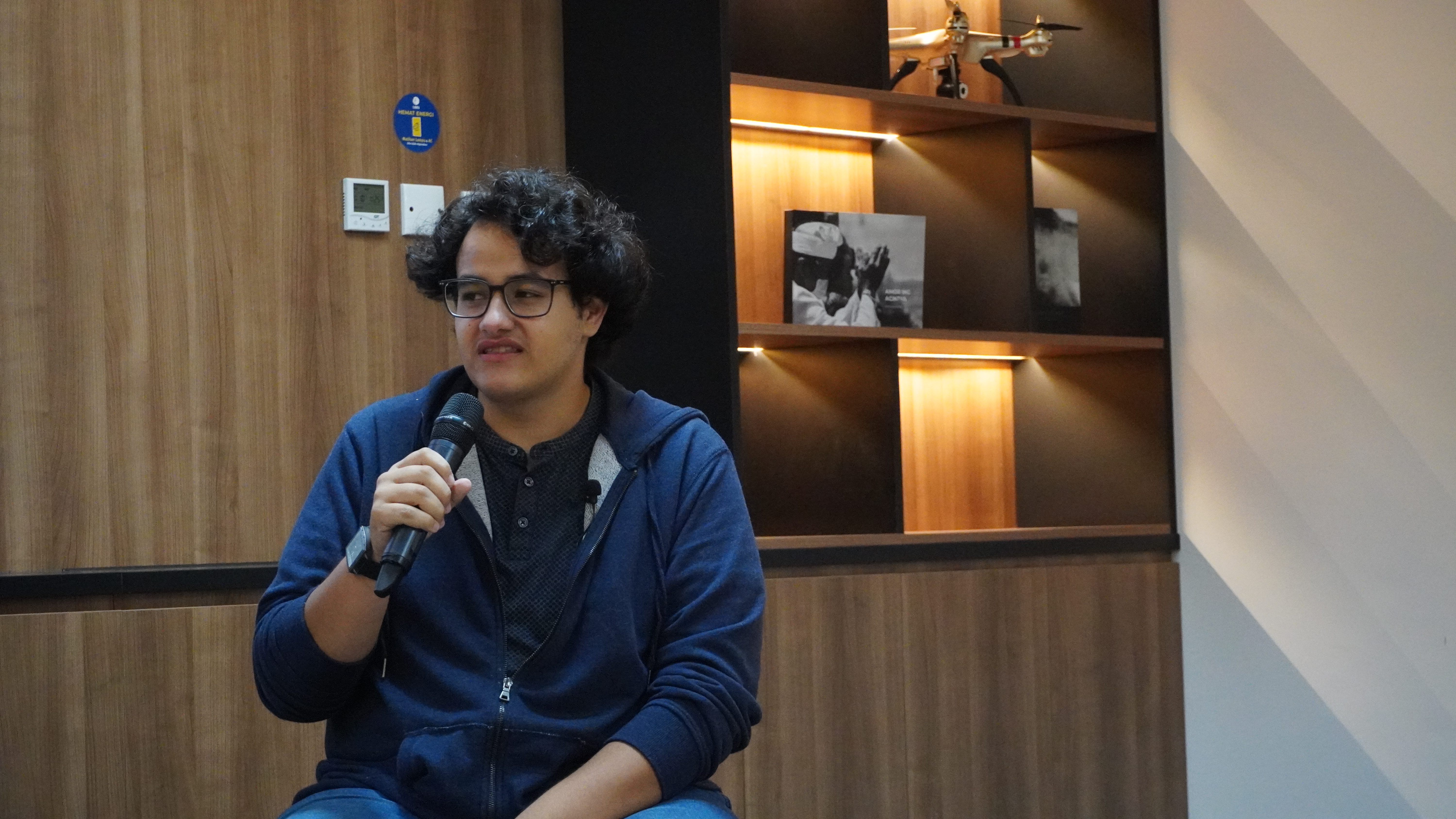 Ahmed shared that many TV channels in Yemen are closed due to political parties and war. (Doc. UMN)
Ahmed shared that many TV channels in Yemen are closed due to political parties and war. (Doc. UMN)
“Since the war started, many TV channels were closed due to the political parties controlling the capital city. So TV channels that go against the political party are closed. Journalists are kidnapped and arrested. If not closed (because of the reasons mentioned), it may be due to the bombs and missiles. We have one TV channel that was affected by the bomb in Yemen,” Ahmed shared.
Due to the unsafe situation, Ahmed added that plenty of media went out of the country, like Turkey. But regardless, due to the war, the media is weak because no one is watching the TV. Similar to the media environment in Belarus, many Yemeni use social media to keep up with the news as they believe it’s more trustworthy.
Yemen is currently dealing with an ongoing civil war. Council on Foreign Relations (CFR) reported that The conflict has displaced more than one million people and given rise to cholera outbreaks, medicine shortages, and threats of famine.
What Ahmed shared is the exact summary of journalism in Yemen. The Committee to Protect Journalists (CPJ) reported that the Yemeni government has harassed and detained journalists. To survive in a country beset by financial and humanitarian crises, for many journalists, the only viable option is exile. But because of that, being away from Yemen makes it difficult for journalists to report on the issues happening in Yemen. Despite so, journalists still continue to advocate for the journalists in their home country. To read the media situation in Yemen, you can read the full article by CPJ here.
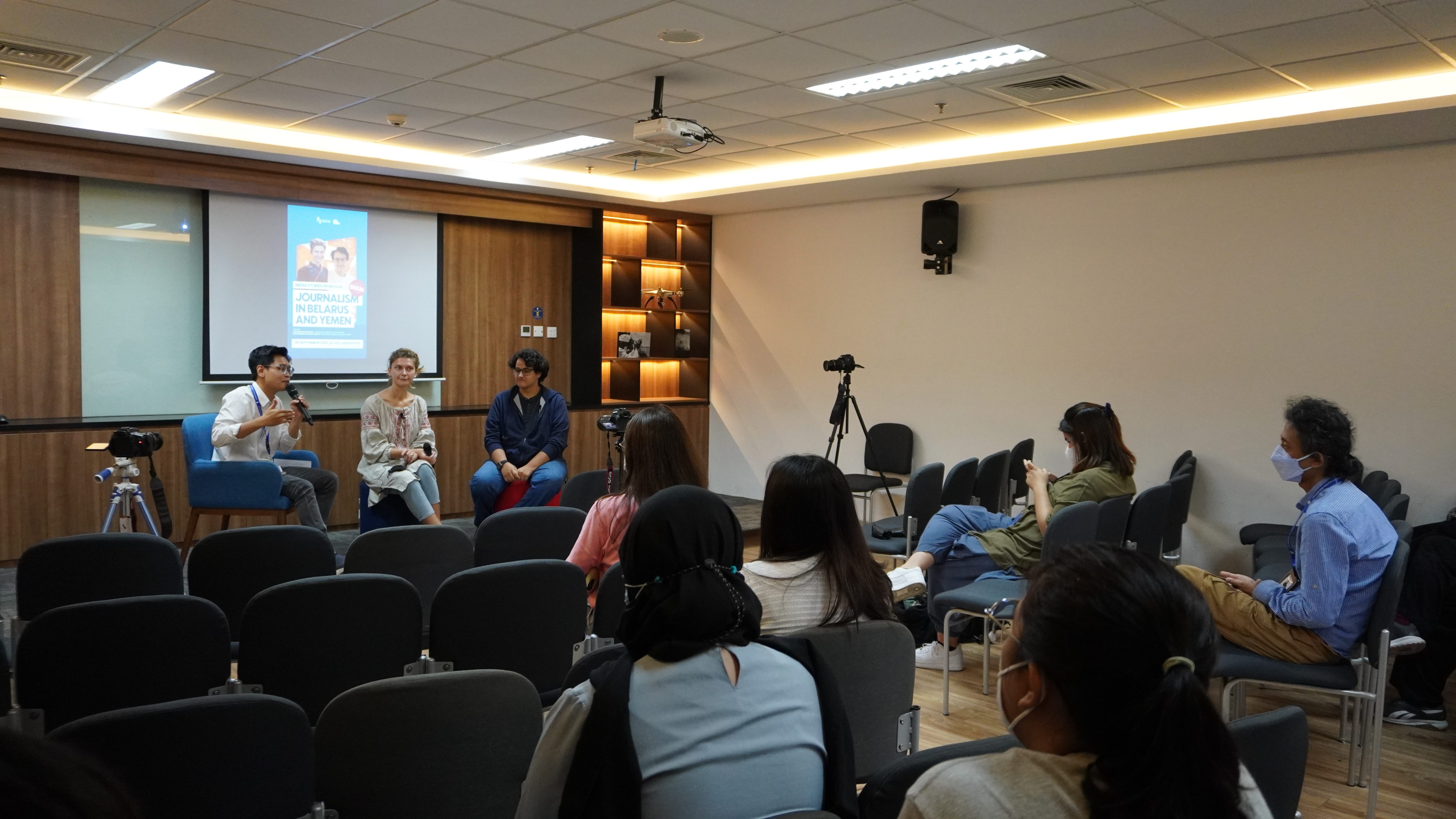 Media Stories from Afar: Journalism in Belarus and Yemen. (Doc. UMN)
Media Stories from Afar: Journalism in Belarus and Yemen. (Doc. UMN)
When asked about non-political news or content on TV, Ahmed shared that things used to be different. Especially during Ramadhan, there would be TV series during the whole 30 days. But now there isn’t much entertainment content due to the war.
“Before the war, you would see people filming entertainment TV shows on the streets. But it is impossible now because if you put your camera out and someone saw, people will ask ‘who do you belong to?’ or ‘why are you taking videos?’” Ahmed said.
It could be concluded that in Belarus and Yemen, the media is predominantly controlled by the government, preventing independent news stations or journalists from thriving. The news cycle is also mainly about politics. This is undoubtedly a different scene in Indonesia with diverse news topics and TV content from politics, entertainment, science, etc.
Seeing the difference in the world of journalism in Yemen and Belarus compared to Indonesia, studying Journalism at UMN will surely provide them with plenty of new knowledge, insights, and experiences. We hope Aliaksandra and Ahmed have a valuable and happy time studying at UMN!
Are you interested to know more about Aliaksandra and Ahmed, as well as the other international students from UTS International at UMN? Watch the UMN podcast linked below.
Also watch: Students from Abroad Study at UMN. What Are Their testimonies?
By Levina Chrestella Theodora
English translation by Levina Chrestella Theodora
Kuliah di Jakarta untuk jurusan program studi Informatika | Sistem Informasi | Teknik Komputer | Teknik Elektro | Teknik Fisika | Akuntansi | Manajemen| Komunikasi Strategis | Jurnalistik | Desain Komunikasi Visual | Film dan Animasi | Arsitektur | D3 Perhotelan | International Program, di Universitas Multimedia Nusantara. www.umn.ac.id

